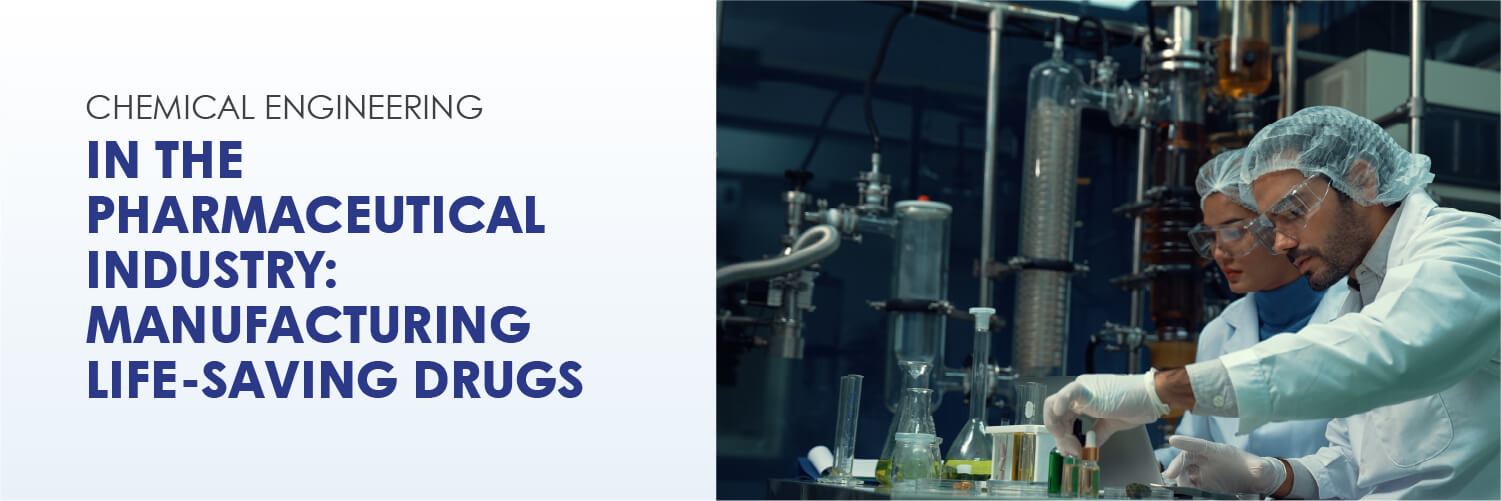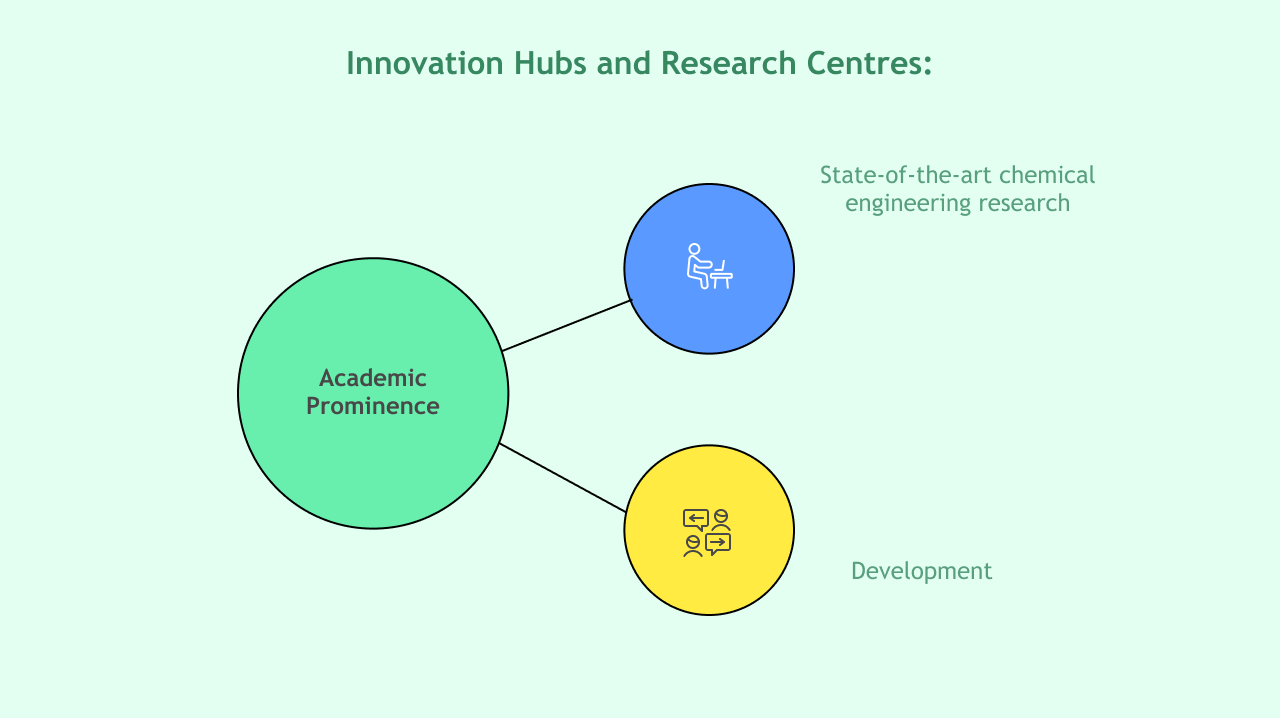Chemical Engineering in the Pharmaceutical Industry

What is the Role of Chemical Engineering in Pharmaceuticals?
Chemical engineers are essential to turning laboratory research into real and life-saving medicines. They design efficient and scalable manufacturing processes to ensure product safety and maintain quality at every stage. At MIT AOE, students gain hands-on experience in pharmaceutical and bioprocess engineering. This prepares them to lead innovations in drug development, healthcare technology and sustainable chemical manufacturing on a global scale. They also explore nanotechnology, biotechnology and green chemistry applications, developing advanced solutions. These solutions improve therapeutic effectiveness and reduce waste to enhance patient health outcomes worldwide.
In order to develop medications that can save lives, the pharmaceutical sector is at the forefront of scientific discoveries and never stops pushing the envelope. Within this ever-changing environment, chemical engineering serves a pivotal role in propelling the complex process of pharmaceutical production.
Chemical Engineering:
The masterminds behind accuracy in pharmaceutical manufacturing are chemical engineers. They create and refine the procedures that turn unprocessed chemicals into useful substances. Chemical engineers make sure everything runs smoothly, with high standards being followed from the very beginning of research and development to the very end of manufacture.
Innovations in Drug Manufacturing
Chemical engineers are leading the way in groundbreaking discoveries that are necessary for the synthesis of life-saving medications. Their knowledge aids in the creation of cutting-edge production methods that produce
- Medications with improved efficacy
- Less negative effects on the environment.
Efficient Product Process:
Streamlining production processes is a major responsibility of chemical engineers, as efficiency is of the utmost importance in the manufacturing of drugs. Their expertise in heat, mass, and reaction kinetics enables them to optimise manufacturing at scale, guaranteeing that life-saving medications are quickly distributed to people in need.
Quality Assurance and Compliance:
Chemical engineers play a key role in creating and upholding compliance with the strict quality standards that govern the pharmaceutical business. They put rigorous processes for quality control in place to ensure that each batch of drugs satisfies legal specifications, ensuring the security and effectiveness of pharmaceuticals.
Regulatory scrutiny is intense: 105 FDA drug-quality warning letters were issued in FY2024—a five-year high. Engineers build quality by design (QbD), process analytical technology (PAT), and data-driven control strategies to maintain compliance and audit readiness.
Academic Prominence:

Aspiring chemical engineers frequently pursue education from the top engineering institutions in India in order to succeed in the field of pharmaceutical manufacture. These universities, which include the top engineering college in Pune, are renowned for their
- Industry-focused curricula
- Outstanding academic records.
They also provide students with the knowledge and abilities needed to contribute significantly to the pharmaceutical business.
India supplies ~20% of the world’s generics and ~60% of global vaccines; exports hit $27.85B in FY24. Pune is a visible innovation node—home to Serum Institute, the world’s largest vaccine manufacturer—illustrating how academia–industry clusters feed skilled talent and translational research into production.
Innovation Hubs and Research Centres:

The top engineering schools in India, especially those in Pune, are frequently used as research and innovation hubs. Academic and pharmaceutical industry partnerships enable
- State-of-the-art chemical engineering research
- Development
that will influence the oversight of pharmaceuticals manufacture in the future.
Prospects for the Future:
As the pharmaceutical industry develops, there will be a greater need for qualified chemical engineers. Graduates from India's top engineering schools, including those in Pune, are well-positioned to spearhead discoveries, propel the creation of life-saving medications, and enhance the quality of healthcare worldwide.
As the pharmaceutical industry continues to expand—with the global market projected to grow at a CAGR of 6.1% from 2025 to 2030—there will be an increased demand for qualified chemical engineers to lead research, develop life-saving medications, and improve healthcare quality worldwide.
In conclusion, the pharmaceutical industry and chemical engineering have a symbiotic relationship that is essential to the development of life-saving medications. The precise labour of chemical engineers assures not only the efficient manufacture of pharmaceuticals along with the promise of a happier, stronger, and more resilient global community.
As we rejoice in these developments, it is clear how crucial it is to receive a top-notch education from the top engineering schools in order to prepare future leaders in chemical engineering and innovation in pharmaceuticals.
OUR RECENT BLOG



